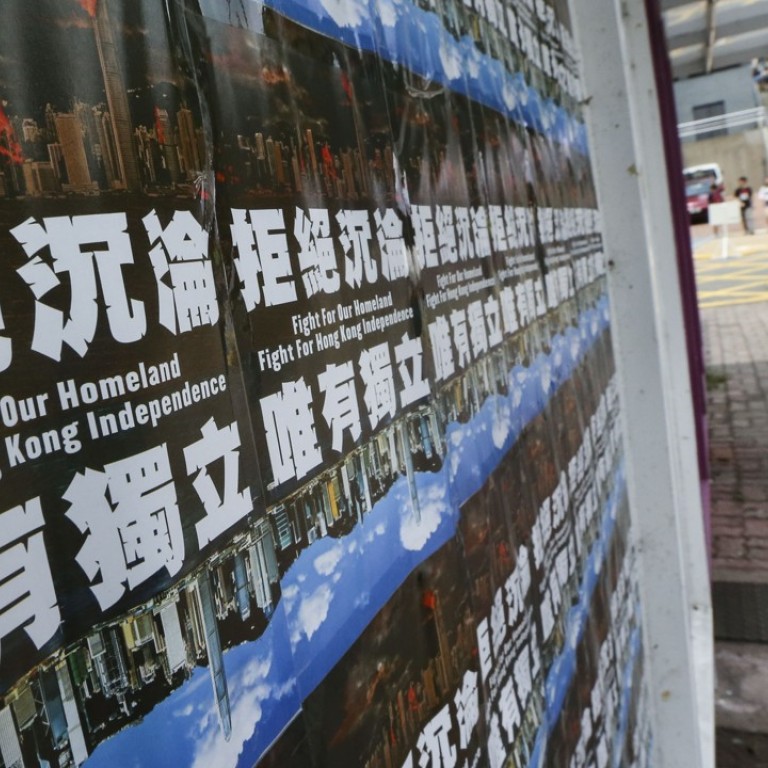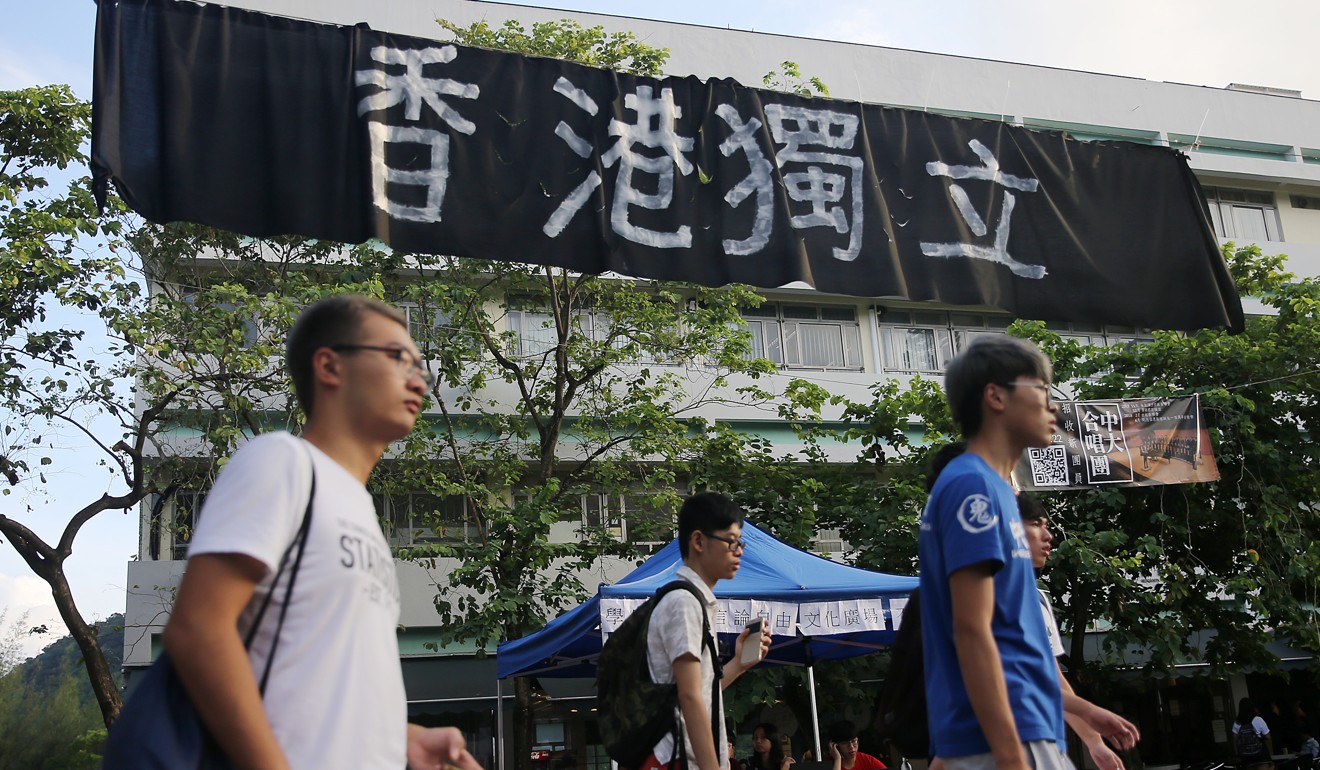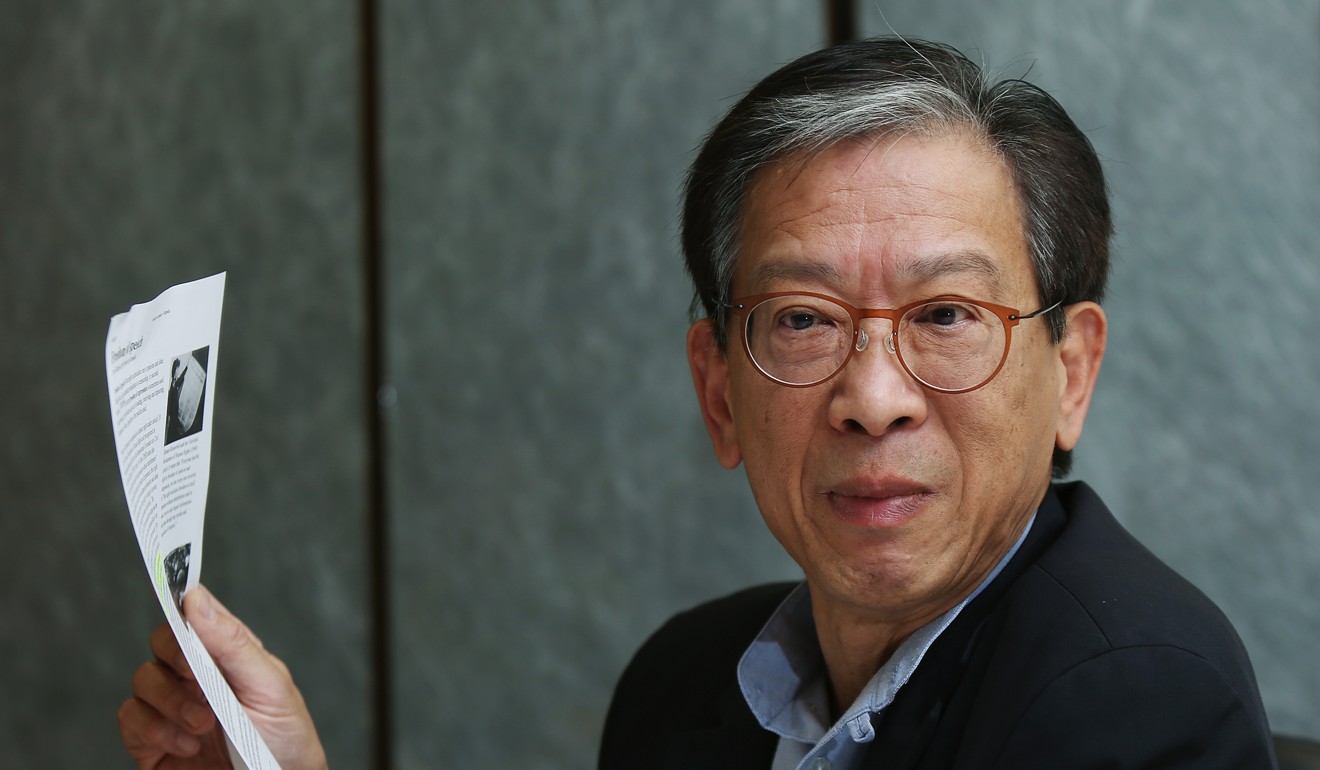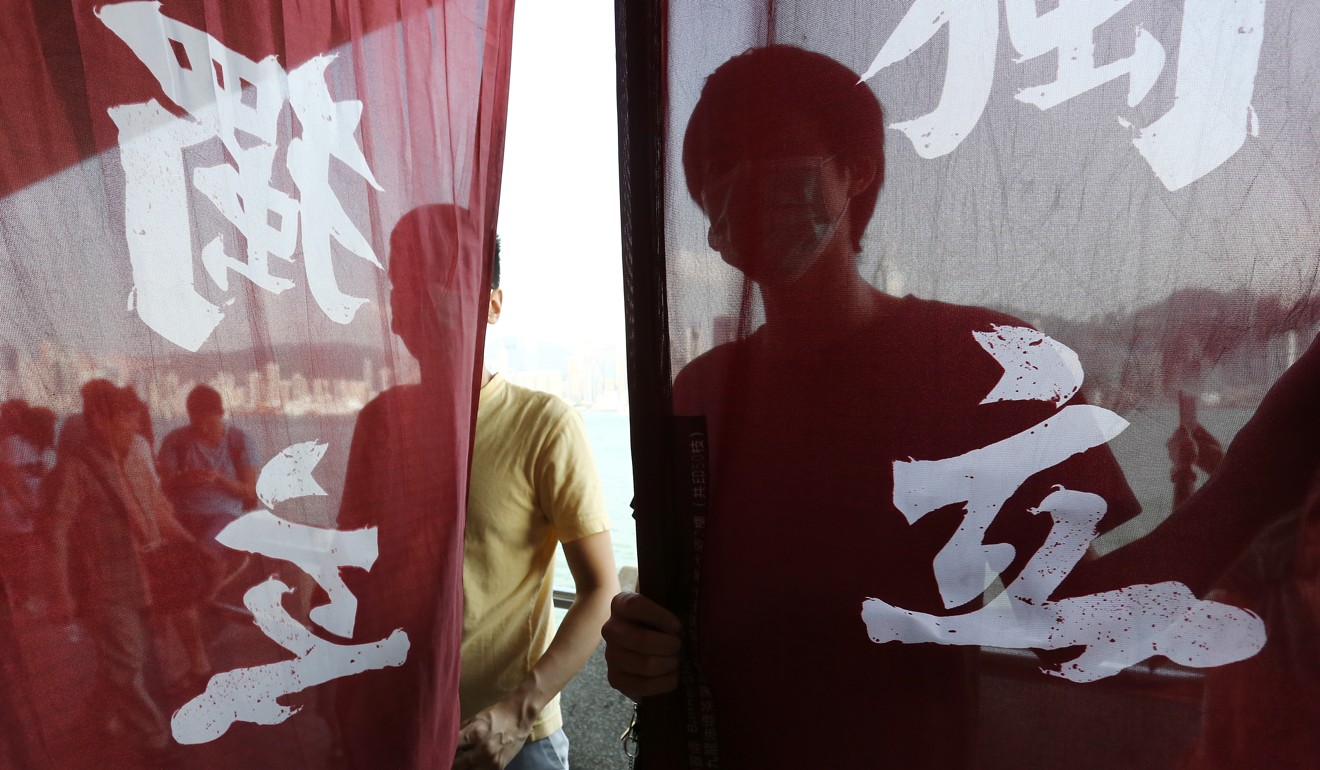
Clarify whether independence banners are criminal offence, Hong Kong justice chief urged
Legal experts are mixed about whether legislation on freedoms or national security will take precedence
Hong Kong’s justice secretary was under pressure on Friday to clarify whether erecting banners with messages advocating independence for the city warranted criminal prosecution, as legal experts continued to debate the matter.
It came as banners and posters appearing on university campuses continued to stir up controversy, with rival student groups staging protests and engaging in quarrels at the Chinese University of Hong Kong.
Alan Hoo, a veteran barrister and chairman of the Basic Law Institute, a think tank, called on the government and Secretary for Justice Rimsky Yuen Kwok-keung to clear up ambiguity on whether such actions necessitated criminal prosecution, given that “publishing seditious messages challenging China’s sovereignty” was a breach of the Basic Law, the city’s mini-constitution.
Hoo cited the Crimes Ordinance, which defines seditious intent as a motive to incite “disaffection against the government” and gives law enforcement officers authority to enter premises to remove seditious publications.

“[The secretary] says this is a breach of the Basic Law, full stop,” he said. “But laws entail legal consequences, and that’s why they are called laws. So you can’t just always put a full stop and be unwilling to [initiate] criminal proceedings.
“If it is allowed, and it won’t affect national security ... then say so. At least we should know what the rules of the game are.”
Without naming names, Hoo also fired a broadside at educators and legal scholars for “condoning and encouraging” independence advocacy “in the name of freedom of speech” while disregarding the rule of law.
Seven Hong Kong student unions label removal of independence banners an ‘erosion of academic autonomy’
A justice department spokesman said the topic of Hong Kong independence ran contrary to the Basic Law and the overall interests of the city. However, he declined to comment on the legality of individual cases before deciding on whether to commence legal proceedings.
Ronny Tong Ka-wah, a member of the Executive Council which advises Hong Kong’s leader on policy, and a former Bar Association chairman, also warned the ordinance could be breached by pro-independence activities.

Under the legislation, anyone who utters, does, or prepares to do anything with a seditious intent may be guilty of an offence and liable to a fine of HK$5,000 and two years in jail.
“If you are challenging it, you are tempting fate,” Tong said.
The Hong Kong government would then only come under more pressure to pass legislation under Article 23 of the Basic Law, he added, which stipulates the city must enact a law on its own to protect national security.
Showdown at Chinese University campus over posters and politics
Meanwhile, Chinese University vice-chancellor Professor Joseph Sung Jao-yiu called for calm and said the campus should not be turned into a “political arena”.
“The idea of an independent Hong Kong is not only in breach of the Basic Law but also contrary to what I personally believe. Hong Kong is an inalienable part of China, that is beyond dispute,” he said.
However, University of Hong Kong principal law lecturer Eric Cheung Tat-ming said the terms in the ordinance were “outdated” and could contravene the city’s Bill of Rights that protects freedoms.
“I believe that is the reason the Department of Justice has been reluctant to apply the ordinance to prosecute anyone, even after Occupy,” Cheung said, referring to the 79-day pro-democracy protest movement in 2014 that brought parts of the city to a standstill.

But Tong, responding to Cheung’s comments, cited Article 19 of the International Covenant on Civil and Political Rights, which states that the exercise of the right to freedom of expression is subject to certain restrictions such as “for the protection of national security or public order”.
Hoo expressed doubt that the laws could be outdated.
“Will you tell Tsang Tak-sing the law is outdated?” Hoo said, citing the case of the former home affairs minister, who was tried and jailed for distributing anti-British “inflammatory leaflets” as a student during 1967 riots.
Independence banners fly on Hong Kong campus on first day of academic year
The banner saga began on Monday when three large black ones bearing the words “Hong Kong independence” appeared at Chinese University at the start of the new academic year. The campus’ “democracy wall”, where students are given space to express their views, was also covered with pro-independence posters.
No one claimed responsibility for the displays and university staff removed the materials, but they reappeared the following day, and spread to five other tertiary institutions.



